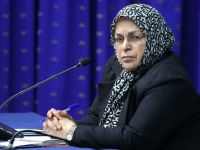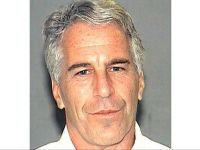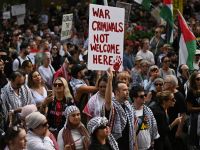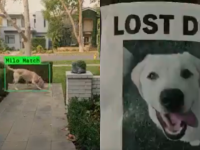(Jordan Times, ZARQA ) – Less than one year ago, a trip to the Zarqa Free Trade Zone was the privilege of the well-to-do. School teachers, junior government officials, craftsmen and most other salaried employees would not have dreamt of hitting the desert road towards the free zone to purchase a reasonably reliable vehicle.
Now, thanks to a government tax reduction, all has changed. Jordanians of diverse socio-economic backgrounds speak confidently about their intention to visit the free zone to hand pick their dream car or modestly lay their hands on a reasonable vehicle to transport them under affordable price.
“Selling a donkey could buy you a car,” said one showroom owner from the zone while smiling. “Prices of cars could start at JD300 and the sky is the limit.”
“I once saw someone buying three cars for his three sons at the same time. It was as if he was buying t-shirts for them,” said Abu Omar, a 64-year-old showroom owner in the free zone.
“One year ago, this zone was empty, as if it was under a curfew. Then dealers did not bother to answer questions over the price of cars because the majority of passers-by did not seem to be serious buyers. They were only window-shopping. Now competition has picked up and the number of customers increased by ten-fold,” said Abu Omar.
As a result, showrooms have mushroomed in the zone over the past year, and now number more than 400, and the count is still going up.
The government's decision to halve the 105-200 percent customs duty previously levied on manufacturers opened new avenues for all types of autos to cruise into the country, and since then, the free trade zones have witnessed a “dramatic increase” in the auto trade.
“The number of showrooms has exceeded reasonable limits. The government has to draw a line and stop allowing more,” said Khalid Kamal, an employee at a showroom in the free zone selling Korean-made cars.
Ten other owners agreed, and called for government intervention to help organize the zone.
Earlier this year, the government announced a plan to transfer the 400 showrooms at the Zarqa Free Trade Zone to a specially organized area.
“We are afraid that the government will transfer us to new locations where nobody goes and we end up looking at each other and spending the time counting the stars,” said Jaber, who started operating his showroom in the zone earlier this year.
Official figures show that more than 70,000 vehicles have entered ZFTZ during the first half of this year. Only 9,000 vehicles entered the zone during the first half of 1999.
Ali Madadha, head of the Free Zones Corporation, said the number is expected to double by year's end at a cost to the country of JD280 million paid in hard currency. Madadha said that adding 10 percent as a cost for spare parts and 10 percent for fuel will bring the total cost to JD340 million.
Madadha said such a figure would negatively affect the balance of payments.
Dealers outside the zone, meanwhile, are dismayed by the government's decision to open the gate to investment in dealerships in the free zone.
“Tax reduction has reflected negatively on us, contrary to our earlier expectations. Sales have taken a nose dive since last year,” said Naser Dein Khamayseh, sales manager at a showroom in Marka.
“Consumers do not trust us any more, as there are price differences between what we offer and what traders in the free zone offer,” he said.
Dealers explained that the price of vehicles in the market and those in the free zone could differ on average by about JD500, in favor of the zones.
But they say that consumers should be cautious in rushing to find rock bottom prices at the zone, quoting an Arabic proverb that says, “Whom you believe to be Moses turns out to be the Pharaoh.” The ZFTZ — the latest regional hub for auto sales — has the potential to be a spring of unsafe and environmentally unfriendly vehicles.
Dealers warn that Jordan could become “a dump” for the rest of the world following a government decision to halt implementing the Jordan vehicles standards, a step that facilitated the flow of unsafe cars to the market.
“Jordan is threatened with the loss of life due to the unsafe cars being driven on the streets of the Kingdom, most of which come from the free zone,” says one observer.
“Without car standards we will not have safe cars on our roads. How do we know that the car we are driving is safe and will not kill us as soon as it is on the road,” asked another dealer.
He said the government must impose car standards in order to protect citizens from the hazards of the streets.
By Mohammad Ben Hussein
© 2000 Mena Report (www.menareport.com)







